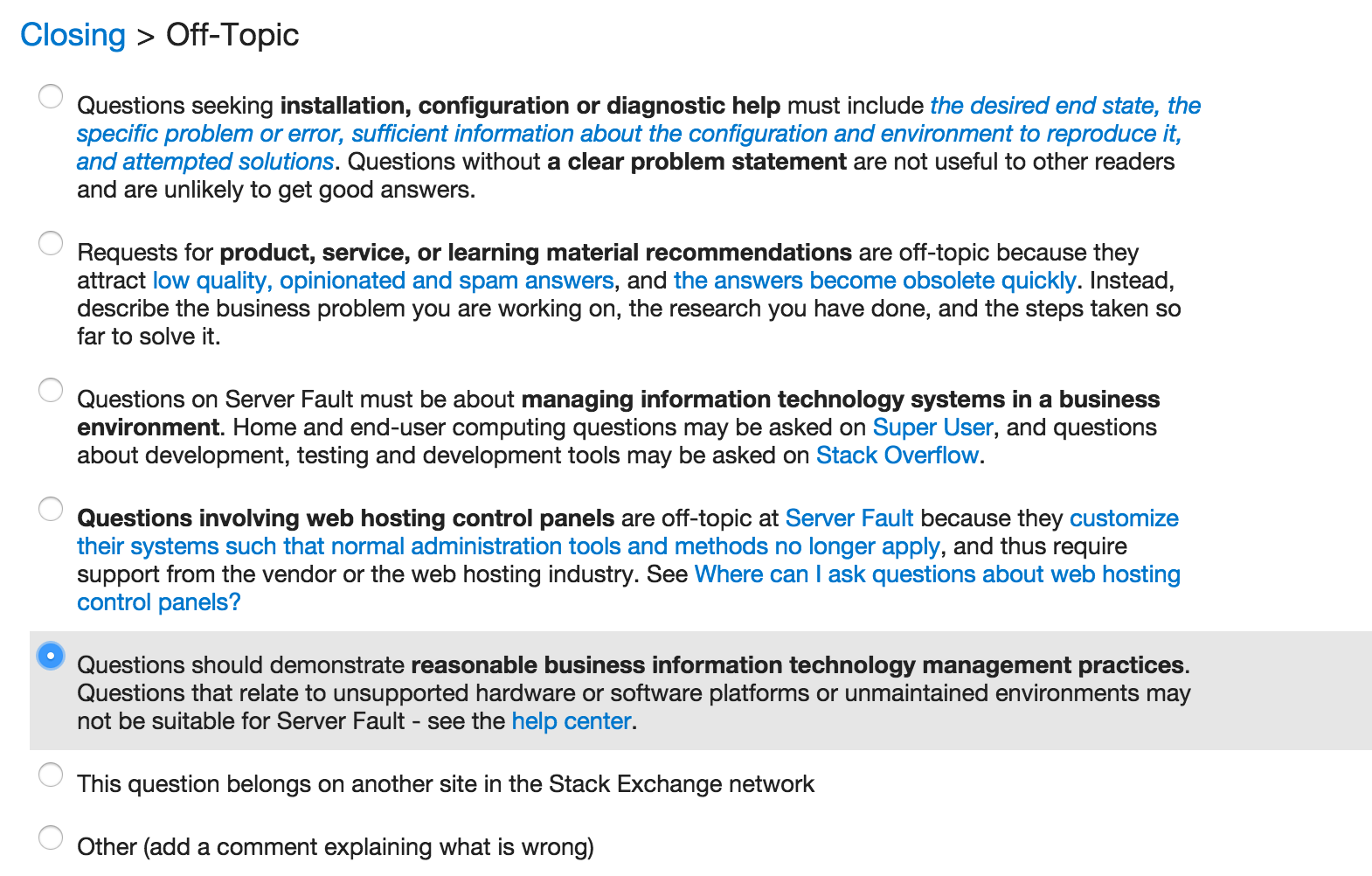The appearance of EOL stuff in a question is clearly not dispositive.
On the other hand, if the use of EOL things in the case given is unreasonable or even stupid, such as when the asker is setting up something new with EOL things that are clearly wrong for the job, we have a close reason for that. The use of EOL junk can totally be the lack of "reasonable" practice, barring some justification.
Either way, it's very often appropriate to leave a comment:
Old! $technology went out of support on $date - if you can, you really should upgrade. Your security and maintainability will be greatly improved.
We don't purge questions about something just because it went out of support, so there is clearly no reason to prohibit new ones altogether.
Sorry to interfere with the poll!

